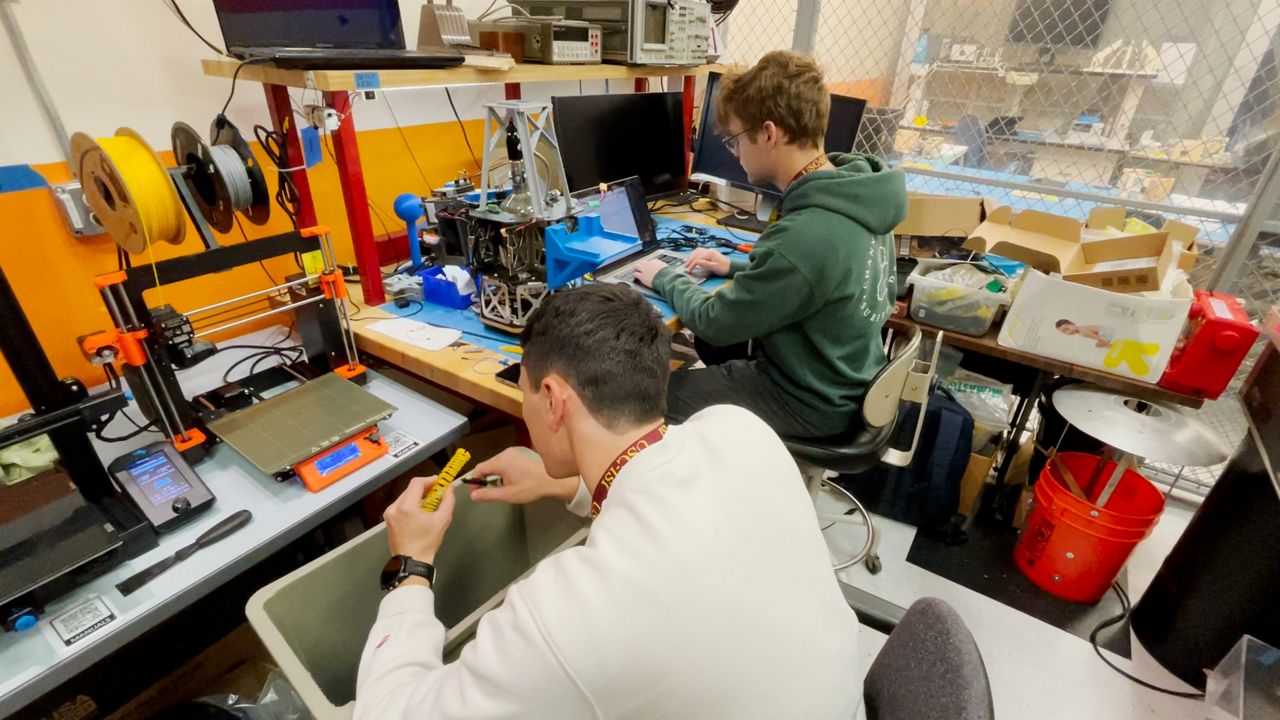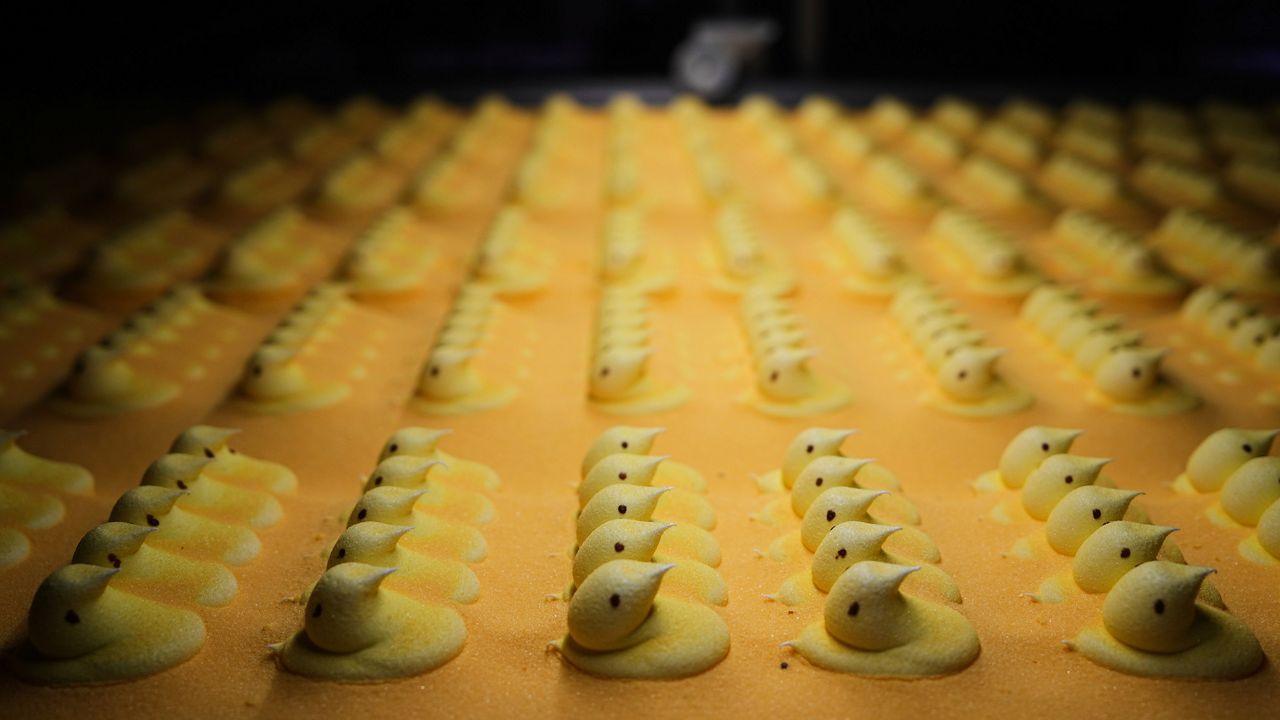LOS ANGELES — Inside a non-descript building in Marina Del Rey, a team of student researchers from the University of Southern California are helping to develop the next generation of space technology.
"Instead of sending satellites up where, 'If they work great. If they don’t, oh well, you can’t do anything about it,' now, there’s this new field of servicing where we can literally do maintenance repair, upgrade refueling, on platforms that are in spaces which is super cool," said David Barnhart, Director of USC's Space Engineering Research Center.
He’s in charge of the innovation lab and says that’s truly the next step in the world of aerospace. Most of the testing is related to what’s known as “rendezvous and proximity operations.”
In other words, getting up close and personal with other objects floating through space that can weigh upwards of two tons.
“It’s the overall aspect of knowledge of where another object is, how fast you’re approaching it, your ability to control it, and that final how do you grasp it as softly as possible?” Barnhart said.
Researchers develop everything from sensing systems and grappling arms to docking technologies that could be placed on anything.
“If you want to do construction in space, you still have to be able to hold the beams, all the parts of materials, right? If you let them go in space, they float away,” Barnhart said.
While most researchers are graduate students, Barnhart says SERC supports students from high school all the way through post-doc in a variety of engineering disciplines outside of just aerospace.
“It’s electrical, computer science, industrial, systems engineering,” he said.

In recent years, Barnhart says SERC has grown to attract more international students as well. This year, he has four graduate students from the French Air Force Academy.
“It’s the next step where the human will go and will have interest, so it’s important to understand the environment,” said Thomas, a French lieutenant who asked us not to give his last name for security reasons.
In June, researchers will send up their project clingers — a unique docking system. It will be tested on board the international space station.
“If you can service things in spacecraft, you can actually think about, now we can build really really big structures, so the idea of an interplanetary spacecraft that can house huge numbers of colonists, it’s getting closer,” Barnhart said.
At the lab, students get a chance to become pioneers in a field filled with innovation.
“It’s still truly a new frontier,” Barnhart said.
And they’re ready to their leave their mark on an industry with so much left to discover.
Let "Inside the Issues" know your thoughts and watch Monday through Friday at 8 and 11 p.m. on Spectrum News 1.











